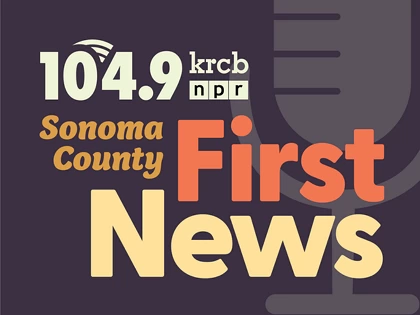 photo credit: photo credit text goes here
photo credit: photo credit text goes hereImage description text goes here
They've been cutting the danger of catastrophic wildfire one chomp at a time. Now, goats grazing on grass and brush around Healdsburg will gain assurances of a proper diet, respect and care.
Regular visits from veterinarians, mandated protection from predators, and supplemental nutrition if needed are among new protections won by goats and sheep in Healdsburg.
The city council there unanimously adopted a policy for humane treatment of grazing animals involved in fire risk reduction Tuesday night.
Lance MacDonald, Healdsburg Fire's Division Chief and Fire Marshal laid out the most important aspect of the new policy.
"The key to the herd health plan is that a licensed, veterinary doctor visits the herd and does a health assessment."
That's to assure animals are healthy and old enough for the job.
The policy was generally welcomed by the council as a trailblazing animal welfare vote. One logically following recently stepped-up safeguards for farmworkers.
Grace Lucero, who told the council she'd been advocating for such changes for years, praised the action, but questioned if city officials would seriously enforce it.
"Although these animals do great things to help protect our homes, I think we really need to snap it up to really protect them. How are we guaranteeing that they are patrolling these procedures?"
MacDonald responded that the fire department and North Bay Animal Services would do so, with the community continuing to act as additional eyes and ears.
Most facets of the policy codify good animal stewardship. MacDonald elaborated on the main points.
"Obviously, we want to make sure that they always have access to fresh water, and then, when they are transported, we want to make sure that they are very humane handling and treatment of the animals. We want to make sure that the animals are protected from predators as much as possible. It's challenging in our hills, we have bobcats and coyotes. The grazing contractors utilize dogs to protect the animals, and we want to make sure that the public is aware, there's lots of signs, keeping them away from electrified fences."

 Live Radio
Live Radio




